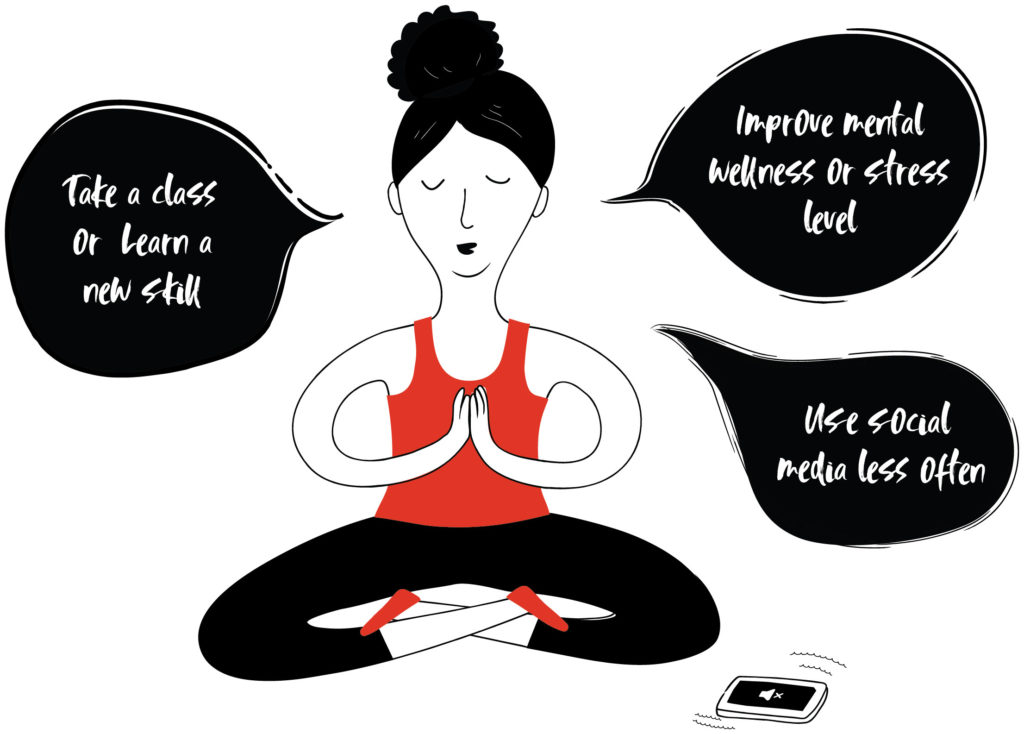Thinking
Five Questions with Edwin Wong, SVP of Media Insights and innovation at Vox Media

Consumer behaviors have changed thanks to technology and so have brands’ responses to them. What are some of the consumer insights that you’ve gleaned over the past year?
The pandemic has taught marketers that quick response and context are critical. The economy, culture, and society continue to change at a rapid pace. Our buying habits, our communities, and our lives are extremely different from just 10 months ago. And there’s new evidence that the consumer has come to terms with permanent change. Early on in the pandemic, based on research from our teams at Vox Media, we saw roughly 10% of consumers believed the shifts in their new routines were permanent, while a majority said the changes were temporary. But by August, we saw a complete flip—68% said they would keep their new routines. Interestingly, 80% felt positive about this change, but believed society had also changed forever. The term essential has begun to change…
What has been labeled essential is not what consumers think of as essential. As the government worked to combat COVID-19, they began to label the places we frequent as “essential” and “non-essential.” Grocery stores, big box retailers, and drug stores were labeled essential, while small businesses, salons, coffee shops and restaurants were labeled non-essential. However, in a white paper we recently partnered with Kanter on, we found that nearly 90% of consumers found small privately-owned retail stores and shops and restaurants to be essential. With a bevvy of areas considered essential, the real story is how consumers are expecting evolution and changes to a new marketplace and business models coming out of the pandemic. The implication is our need to rethink the use of the word essential. For some, life is not just functional, it also has to be beautiful, expressive, and experiential. The new “roaring twenties” will be an explosion of music, art, dancing, and cinema driven by our sacrifices and hardships from this time.
We are also starting to recognize that the value economy will become the value(s) economy… I believe we will continue to see consumers hold brands accountable in 2021 and beyond. In a recent white paper published with Kantar, we found that over 60% of respondents expect brands to be involved with causes related to healthcare. We will see how a brand’s action can impact its bottom line, as when asked what’s driving purchase decisions, 70% of audiences find it important for a brand to treat their employees fairly. Two-thirds of consumers believe it will be much more important for brands to impact socio-cultural causes in years to come.
Audiences want to support businesses that are “making a difference” in spaces like healthcare, education, and poverty. They have greater expectation of brands to be involved in building a more sustained, more inclusive, and more just world. They are looking for a return on community rather than return on investment. In 2021, we will see brands continue to look for flexible partners as they need to adapt quickly to changing audience needs, and as we see audiences hold brands more accountable, we’ll hopefully see brands align their marketing spend to channels and partners that align to their values as a company. The brands that are actually focused in on some of those things, as an experience, whether digital or not, are the ones that actually are going to end up succeeding. And I think that’s why it’s been so fun to understand consumers through the lens of insights.

Nothing is the same as it used to be in many ways. How has the team at Vox Media responded to such seismic changes?
Much of the insight function has traditionally been deployed to incrementally impact traffic, optimization, and product. But during the pandemic, we saw how insights could help us understand what our audiences expected from both our editorial networks and our brand partners in the face of unknown circumstances. The insights function is moving away from being micro to macro. We are less focused on product features and competition differentiation because we need to redefine and reorient whole categories. We have 13 editorial networks and audiences that tune into our content across nearly every platform – across streaming, podcasting, social, digital – so we are able to help our partners and our internal teams understand how behaviors are changing and what our audiences’ expectations are from us and brands.
We’ve surveyed our audience this year to understand their perspective on the Black Lives Mattersmovement and their expectations of brands as consumers look to drive action and create lasting change. We’ve looked at consumer trends and how audiences are shopping, how the pandemic adjusted routines and rhythms, how our audiences are consuming content, like podcasts. We share all of these insights (see all our 2020 work) regularly with our brand partners and internal teams to help them navigate these unprecedented moments, as audience behavior is shifting quickly.
What are some exciting new developments that you’ve seen come out of CES this year? What are your takeaways from CES now that it is a digital conference instead of the larger-than-life physical one?
I know our reporters, especially those at The Verge have been covering closely all of the big news to come out of the event, in a much different forum than convention centers. It’ll be interesting to see how an event that relies so much on an experience where audiences can see the product in person will pull it off entirely online. On the tech and gadget side, I’ve been interested to see what comes out of the healthcare sector. As a larger number of consumers will continue to be at home, looking for ways to work the mind and the body will be critical. In fact, in our latest study, “control, activity and resiliency” are key themes for our users in 2021.
They want to manage their minds more than their bodies, invest instead of save, and be the positive change even when there are challenges. Lastly… someone give me a drink because dry January is no longer a thing in 2021. I imagine a number of companies will be looking to make timely pitches in this space. We know wellness is top of mind for our audiences so I’m sure this is a pitch companies will make this week. Technology and gadgets are becoming core to so many of our lives, as we continue to work remotely. As gaming as a category has been exploding, which our network Polygon has been following for close to a decade, we expectedly saw a number of announcements in the gaming space as consumers become more savvy in setting up their gaming space. One that can double as a good space for working remotely too.

Digital media has changed and will continue to change for years to come, especially as the paradigms of at-home and office work continue to shift and influence consumer behavior. How does Vox Media envision it will evolve in years to come?
We’re seeing a number of consumer behaviors and trends in digital media accelerated by the pandemic. a lot of which our business is prepared to capture. One is streaming, as audiences shift to watching more on channels like Netflix, Hulu, Disney+ and the rise of legacy media companies shifting strategies to more on demand content. Arguably more than any other publisher, Vox Media has been successful in this space. We have partnerships with nearly every big streaming company, across Netflix, Hulu, YouTube and will continue to grow the Vox Media Studios business with big ambitions in 2021. Another is ecommerce, as analysts say shifts from in-person to digital retail are accelerating by as much as five years. At Vox Media, we are prepared to capture that spend, as we have a strong and growing affiliate commerce business across a number of our networks. The Strategist – New York Magazine’s ecommerce site – saw major growth in 2020 and we expect it to continue with its ability to drive shopping behavior with its unique experience of curation and discoverability.
These shifts were already under way, but because our business is diversified and built to reach audiences based on where we see consumption and behavior changing, we’re optimistic about the future of our business. On the research side, one thing we noticed quite early on is the importance of digital media for most consumers. 75% say online content has become a source of comfort since the pandemic started. 68% say they’ve become more reliant on their mobile devices. 63% say the pandemic made them realize they spend too much time on social media. For the most part, content consumption was around the pillars of self-improvement and escape. A bifurcation of media into what we know as the “Truth versus Fantasy Spectrum”. We saw a 60% increase in time spent on news, but also a 75% increase on escapism content. In the Reality truth spectrum – we wanted things to be complete truth in our media – fictional no-nonsense news to give us answers to important questions. In our Fantasy truth spectrum – we wanted complete escape like Polygon’s guide to Animal Crossing’s Toy Day guide during the holidays or, Vulture’s what to watch on the next new streaming platform, or even the best items to shop right now on the Strategist.


What are some of the most interesting customer insights have you gleaned this year?
I’m reminded of my favorite article from Sam Lessin of The Information who wrote about “The Escalating War Between Physical & Digital Realities.” He spoke about the destiny of the internet to integrate into the physical world. However, COVID-19 has forced many of us to leave our physical selves and communities and take arms in building up and defining ourselves in digital spaces and places. I find what he proposes to be profound. He posits that the two worlds are fundamentally incompatible. Resolving conflict between them is impossible, which will make it harder for people to coexist in both worlds. In many respects, as a society we are still young in mind. Like children, we still don’t understand decorum, perspective, and we thrive in bully behavior.
We’ve done some fascinating work on the changing important role of news that you understand, not just news you watch. We’ve studied how consumers on Vox are reacting to systemic racism around the Black Lives Matter movement and even the call for Equality through Equity. We did all of this while trying to practically help marketers understand a time that was simply UNIMAGINABLE. It’s been the most interesting of times to be in insights–in literally the worst of times. As we break out back into the real world in 2021, we will have to keep close to our consumers to understand how the last 12-14 months will change an entire generation of people and shape new realities and new industries. The virus changed society and put into question the very fundamentals of “normal” that we’d all come to unthinkingly accept and expect, but despite the disruption, the pandemic also created a rare opportunity for us to see how our audiences were reflecting on their lives and looking to potentially reset them.